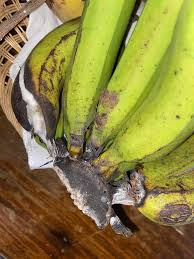
Global food systems need to be shaped in such a way that they are productive, inclusive of the poor, environmentally sustainable, resilient and able to deliver healthy and nutritious diets to all. However, health measures which pertain to agricultural trade are not supportive of this sustainability, particularly when it pertains to developing countries.
This article is the first of a three part series which discusses issues which are curtailing the growth of agriculture in developing countries.
The entire series will cover the following three areas of concern; health barriers to agricultural trade, small holder farmers and how they compare to corporate agriculture, and the ruinous effects of agricultural subsidies on developing economies.
Sanitary and Phytosanitary (SPS) measures, are regulations which governments use in order to protect human, animal and plant life from the threat of unhealthy food and agricultural imports.
They address food-borne risks, along with pests and diseases which may affect plants, animals or humans, arising from importing food and agricultural products.
Trade in agricultural products carries risks to human, animal and plant health. Micro-organisms capable of causing disease or death, pesticide residues, veterinary drugs, or risky food additives, are examples of dangers associated with agricultural and food trade.
Also, livestock or plants and their produce may introduce pests to importing countries, causing widespread problems if they diffuse. SPS systems are therefore designed to contain such risks and limit those potential hazards. However, SPS systems can also be used to impede international trade and protect domestic food and agricultural producers from foreign competition, through:
Unjustified or discriminatory SPS requirements for different source markets.
- The Fiddler: Criminal stench
- The Fiddler: Criminal stench
- ‘Graft blighting Zim trade’
- Willowton eyes regional markets
Keep Reading
Unnecessary, costly or time consuming tests and assessments on imports.
Duplicative conformity assessment procedures, whereby both the exporter and importer evaluate the compliance of products to relevant SPS measures.
WTO stance on SPS measures
In order to harmonise the manner in which World Trade Organisation (WTO) members implement SPS measures, the WTO introduced an SPS Agreement in 1995, which gives recommendations and guidelines on how nations ought to implement their individual SPS measures.
The WTO SPS Agreement covers three areas — food safety, animal health and plant health. It is also backed by a dispute settlement mechanism, whereby countries which need to register formal complaints against others may request the establishment of a panel of inquiry by the WTO’s dispute settlement body. The dispute settlement body can then make rulings based on panel of inquiry findings, which the parties should comply with.
International standards set by the following organisations, should ideally guide individual country standards; Codex Alimentarius Commission (CAC), which sets standards for food safety, the International Plant Protection Convention (IPPC) which determines standards pertaining to the protection of plant health, and the World Organisation for Animal Health (OIE).
If there is scientific justification and risk, the WTO SPS Agreement permits individual countries to have more stringent SPS measures than international benchmarks.
However, the process towards such decisions should follow laid down guidelines for risk assessment, developed by relevant international organisations.
Article 10 of the Agreement provides for Special and Differential Treatment, which means leniency towards developing countries pertaining to their challenges with satisfying some SPS requirements, is encouraged.
Where possible, developed countries are encouraged to lower their SPS standards for developing countries, after taking into consideration their infrastructural, human and financial resource limitations.
Where developed countries note that a lowering of SPS standards is not feasible, Article 9 of the Agreement advocates for them to assist developing countries to meet the SPS requirements within their highly-regulated markets. This assistance can be provided through donations, grants and technical capacity building.
The Agreement encourages countries to accept as equivalent, even different SPS measures of other WTO members, if exporting country demonstrates that its SPS measures achieve importing country's required levels of SPS protection.
Evidence from exporting country may be in the form of domestic legislation pertaining to standards, procedures, policies, applicable infrastructure and efficacy of enforcement and control programmes. Exporting country should therefore achieve importing country's appropriate level of protection.
When countries wish to introduce any additional SPS measures, they are obliged by the Agreement to notify the WTO of their intention to do so, within a reasonable time before implementation. The motivation of their additional measures must be motivated by science and accompanied by adequate risk assessment, as established by the aforementioned international SPS organisations.
SPS measures as barriers to trade
Available information shows some developed economies have set stricter SPS measures, which developing countries consider as barriers to trade.
For example, EU SPS requirements are more stringent, even by most developed country standards.
The disadvantage of this is developing countries struggle to create and grow export markets in developed countries, negating their inherent competitiveness in agriculture, which ultimately remains as idle potential.
Corporations, including industrial farming and agro processing companies, are allowed to attend meetings of the international SPS organisations (WTO SPS Committee, Codex, IPPC and OIE), as contributors or observers. This means they can eventually contribute to ultimate guidelines and recommendations set by these organisations.
Unfortunately, there remains risk that this inclusion potentially opens the international organisations to hijacking and influence by industrial agriculture and other corporates.
If the aforementioned capture were to happen, then the interests of small holder farmers and small scale agro processing companies, particularly from developing countries would be compromised. For instance, even international SPS measures which are lower than some developed countries’ regulations could be set at even stricter levels, through the corporate influence.
This would make it even harder for developing countries and small businesses to satisfy them, if corporate interests influence the setting of benchmarks which only they can fulfil.
Another contested area pertains to distinguishing between legitimate and protectionist SPS measures.
Compliance with voluntary standards such as certification for labour relations and environmental management is not necessarily mandatory and imports should not be denied market access solely on the basis of failure to comply with those.
However, in practical terms, the distinction between standards and regulations is fading away.
This is because voluntary standards are sometimes incorporated in regulations. Of course, such an incorporation violates WTO rules for food and agricultural trade.
Recommendations
For the world to have truly sustainable food systems, it is clear that developing countries need to be given a platform to expand their agricultural production. An improvement of their respective agricultural sectors would also result in better distribution of global income and wealth.
In accordance with Article 10 of the WTO SPS Agreement, developed countries should lower their SPS measures for developing countries, such that they are only moderately above the threshold of health safety.
Strict regulations will not help in assisting developing countries' agriculture. In that regard, Article 10 of the SPS Agreement may need to be edited so that its wording provides for the following:
"Leniency of SPS measures pertaining to developing countries.
If developing countries feel that SPS measures required of them are cumbersome, due to demands which are way above normal health and safety measures, they will be permitted to register a complaint at the WTO, and request the establishment of a panel of inquiry by the dispute settlement body.
A party found to be in violation of Special and Differential Treatment towards developing countries will pay for the developing country's legal expenses accrued in resolving the dispute, and compensate the losses it encountered due to the prejudicial treatment of its exports."
This kind of wording implies that the Special and Differential Treatment for developing countries, as espoused in Article 10 of the Agreement, will become mandatory.
In cases were developing countries have clearly failed to meet basic health and safety thresholds, for their exports to developed countries,
Article 9 of the Agreement which recommends technical assistance from the developed country, should be invoked. The wording of Article 9 will also need to be altered such that, it contains text as follows:
“For developing countries which have clearly failed to meet basic SPS requirements, developed countries are bound to assist up to five of them, in their most promising two product lines, such that they invest in expanding their technical capacities. Promising product lines will be acknowledged as those exports which the exporting developing country has elected to get assistance with.
In capacity building, preference will be given to public institutions and small holder farmers.”
Once more, introducing such text would make Article 9 mandatory. In this manner, there are likely to be more concrete steps taken towards improving the sustainability of the developing country's agriculture and food systems.
If small holder farmers in developing countries can earn more incomes through increased export volumes, the economies will flourish, thereby promoting food security and social well - being, concurrently.
Developing countries should be encouraged to pool their financial, human, technological and infrastructural resources, so that they create quality regional SPS regulatory, certification and accreditation hubs.
This can enable them to make up for skills and other resource deficits, which are consistent with their limitations. Such an initiative can also motivate an accelerated regional harmonisation of regulations and standards, amongst themselves as developing countries..
- Tutani is a political economy analyst. — tutanikevin@gmail.com






